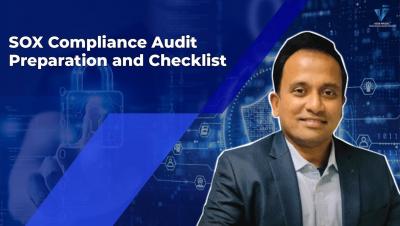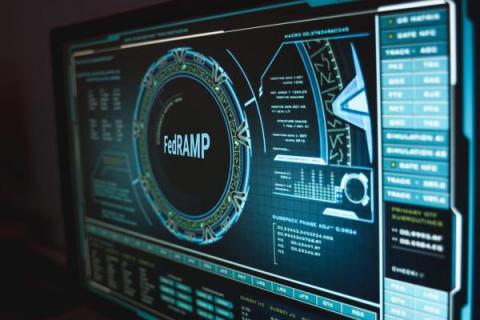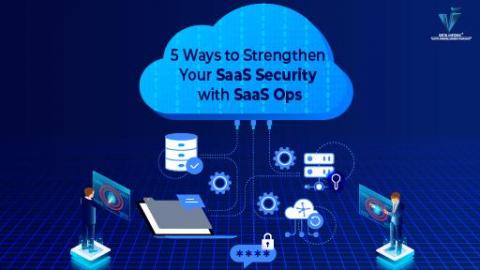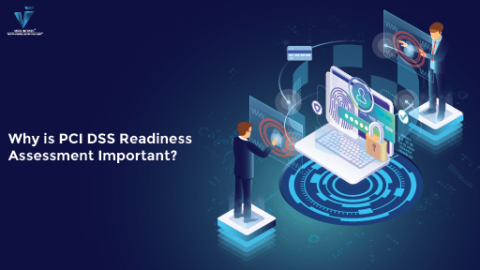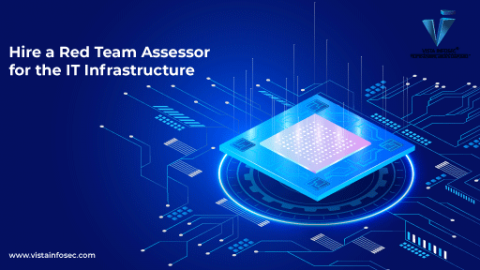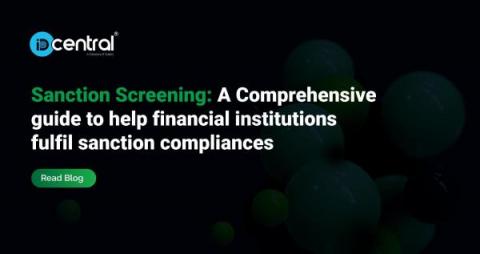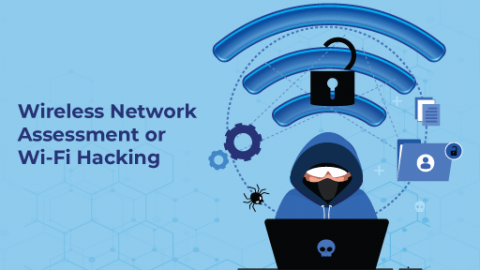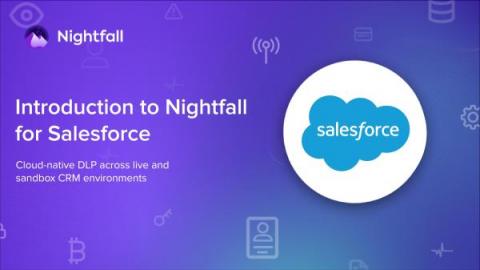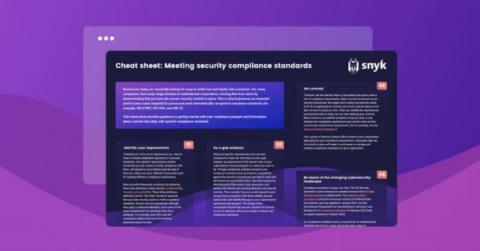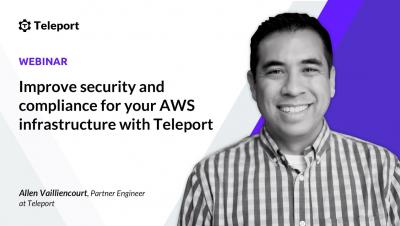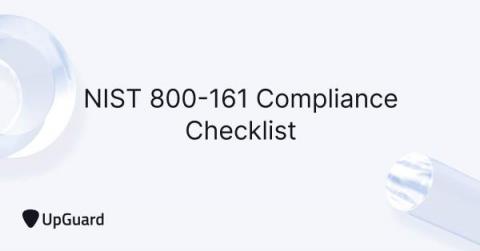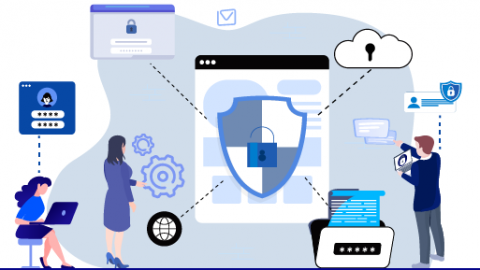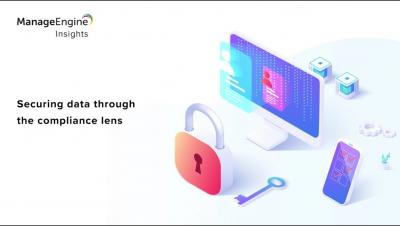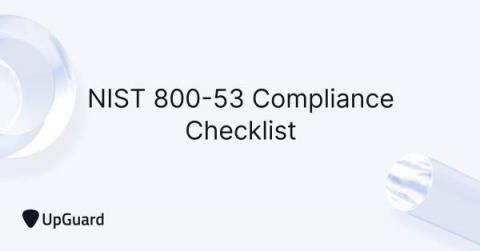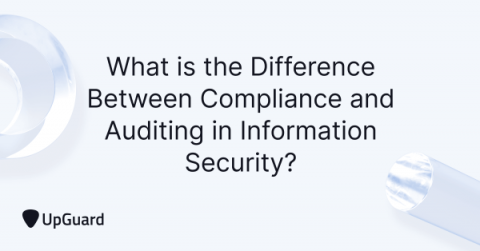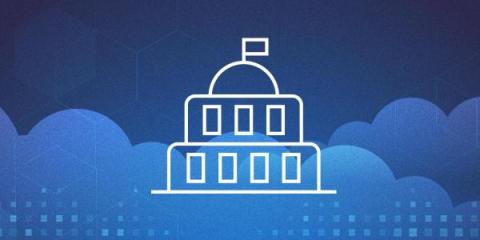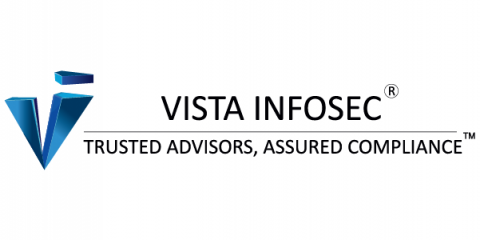Security | Threat Detection | Cyberattacks | DevSecOps | Compliance
September 2022
What is FedRAMP?
That’s a good question if you’ve been curious about what it is and if it applies to you. For example, do you have a cloud product that the US Government would gain benefit from using? Are you being asked to seek a security approval or an “ATO” by your customer? We’ll go through the basics of FedRAMP in this article to help you understand where you stand in that process. FedRAMP is a government-wide program.
Strengthen Your SaaS Security with SaaS Ops
Many organizations have multi-cloud setups, with the average corporation employing services from at least five cloud providers. Compatibility problems, contract breaches, non-secured APIs, and misconfigurations are among the security hazards cloud computing brings, which is popular. SaaS configurations are an attractive target for cybercriminals because they store a large amount of sensitive data, such as payment card details and personal information.
PCI DSS Readiness Assessment
The PCI Council has set a robust framework comprising a comprehensive set of requirements for enhancing the security of payment card data. So, prior to performing the final PCI DSS Audit, most Level 1 Merchants conduct a PCI Readiness Assessment. This is to validate the effectiveness of their security implementation and the readiness for the final audit.
DoD Cybersecurity Requirements: Tips for Compliance
The IT systems and data of the Department of Defense (DoD) and its network of contractors are a matter of national security. Accordingly, the DoD maintains cybersecurity requirements that organizations must meet in order to be an approved vendor for the DoD. This article provides an overview of the most pertinent documents that inform the DoD’s cybersecurity expectations for defense industrial base (DIB) organizations, a review of useful frameworks, and tips for implementing DoD requirements.
Reasons to Hire a Red Team Assessor for the IT Infrastructure
Red team assessors are professional hackers who are hired to assess the IT Infrastructure of an organization. They are hired to evaluate and perform hacks on systems in a way a malicious hacker would perform an attack and break in into the systems. They basically simulate an attack to exploit gaps in the organization’s IT Infrastructure. This is precisely the way how a red team assessor evaluates the effectiveness of an organization’s security controls in place.
Sanction Screening: a comprehensive guide to help financial institutions fulfil sanction compliances.
Financial institutions use sanctions screening as a tool to detect, prevent and manage sanctions imposed on individuals and entities. Sanctions are issued on entities, organizations and individuals who are deemed drug dealers, human traffickers, terrorists and smugglers by the respective country or the U.N.
Wireless Network Assessment or Wi-Fi Hacking
Wireless network technology is widely used but at the same time, it has many security weaknesses. Several reports have explained weaknesses in the Wired Equivalent Privacy (WEP) & Wi-Fi Protected Setup (WPS) to encrypt wireless data. Before understanding the benefits of Wireless Network Assessment it is necessary to know what it is, why it is needed, how the service works and what you get from the service.
Two paths to FedRamp: the journeys of HackerOne and Sumo Logic
Now Available: Nightfall Expands Data Security and Compliance for Salesforce Customers
By design, Salesforce is an environment where customer PII and other sensitive information must be shared and stored. However, compliance regulations like PCI DSS, HIPAA, GDPR, CCPA, and others limit this storage and usage of customer data to only what’s justifiably required for an organization to carry out its duties. Even then, there are requirements for how this data should be stored – like whether it should be encrypted, for example.
Compliance: The False Sense of Security
I know many will read this title and think that I am crazy. If I am compliant with NIST, HIPAA, ISO, PCI, etc., then I am running a secure network. And to a point that is true. But let’s look at it this way. If you are driving down the interstate at the posted speed limit and are keeping three car lengths between the driver in front of you, are you truly safe and secure on the interstate?
How Manufacturing Companies can Safeguard Software and Assure Robust Quality and Compliance
Although application security and compliance are relatively modern concerns, they impact every industry that uses technology, even traditional industry sectors such as manufacturing. Most manufacturers that do business on a large scale have embraced technology as a necessary business component in the digital economy. Many manufacturers have built heavily integrated functions across the entire manufacturing process, as well as tying in related areas such as operations and logistics.
Cheat sheet: Meeting security compliance standards
Security and compliance has a major role in every organization. Businesses are nothing without the trust and loyalty of their customers, and for many companies — from early-stage startups to multinational corporations — winning that trust starts by demonstrating that you have the correct security controls in place. Internationally-recognized compliance standards, such as ISO 27001, PCI-DSS, and SOC 2, make up the industry-standard goals that most businesses and organizations pursue.
How Sumo Logic helps you comply with the CERT-In Directions 2022
Improve security and compliance for your AWS infrastructure with Teleport
How to unite security and compliance in 5 simple ways
We have entered the era of data compliance laws, but regulations have not quite caught up to the level of risk that most organizations are exposed to. Uniting security and compliance is crucial to maintaining regulation standards and ensuring a secure environment for your business. Digital transformation and the rollout of new digital tools are moving faster than the speed of litigation. For example, many industries are utilizing connected IoT tools that significantly increase attack vectors.
Free NIST 800-161 Compliance Checklist
NIST SP 800-161 revision 1 outlines a cybersecurity framework for mitigating security risks in the supply chain. NIST SP-800-161 is a subset of NIST 800-53, a broader cyber risk mitigation framework that’s foundational to most cybersecurity programs. The National Institute of Standards and Technology (NIST) designed NIST 800-161 to improve cyber supply chain risk management for all U.S federal agencies.
How IoT Is Changing Government Security?
IoT has emerged as a concept in the early 2000s. Since then, this technology has been adapted to facilitate more innovative building technologies and improved security strategies. It looks like IoT is here to stay and will be the future of building technology and security. According to Statista, there are currently 3.65 billion IoT-connected devices worldwide.
Securing data through the compliance lens
Free NIST 800-53 Compliance Checklist
NIST Special Publication 800-53 sets an exemplary standard for protecting sensitive data. Though originally designed for government agencies, the framework has become a popular inclusion in most security programs across a wide range of industries.
What is the Difference Between Compliance and Auditing in Information Security?
Global information technology (IT) spending on devices, data center systems/software, and communications services reached $4.26 trillion in 2021 and is expected to increase to around 4.43 trillion U.S. dollars at the end of 2022. With this new, skyrocketing growth, organizations face complex new compliance and IT security challenges in how data and information are stored.
Top CMMC Compliance Challenges Experienced Professionals Encounter
With the deadline to comply with CMMC expected in May 2023, many in the Defense Industrial Base are scrambling to understand how to comply, the tools they need to comply, and the cost to comply. It’s a lot to get right, and there’s a lot riding on it—companies will need to comply if they want to do business with the DoD. That’s why we’ve developed a series of blogs, checklists and other assets to help contractors manage the complexity.
Beyond Data Episode 2: Vehicle Autonomy; the good, the bad, and the complicated
In our second Beyond Data podcast episode ‘Autonomous mass transportation and its impact on citizen privacy’, we will sit down with Beep’s Chief Technology Officer, Clayton Tino to explore the current landscape of autonomous vehicles (AVs), whether AVs truly can replace the human factor in public transportation, and how AV ethics can be holistically measured. Here we give you a snapshot of that fascinating discussion by digging into a few of the explored topics.
GDPR Privacy Notice
GDPR Regulation is an international Data Privacy law that upholds the rights of citizens of the EU. It gives citizens more control over how their data is used in the organization. If your company handles the personal information of people in the EU, then they are expected to comply with GDPR. Like any other regulation, GDPR too requires an organization to abide by the rules and requirements outlined in the law.
UKG Video Blog - Tis the Season: Prepping for Benefits Enrollment and Year-End
Through UKG Pro, NeoSystems provides Payroll Administration and Tax Management, Compliance, Benefits Management, Open Enrollment, Recruiting, and On-Boarding as well as property, skills, and certification tracking – all through a cloud-based manager & employee self-service platform.
MeBeBot Trust Champions Achieve SOC 2 Compliance
What is a Trust Champion? A Trust Champion is the person who helps their organization measure and meet their internal compliance obligations. Their actions support revenue-generating activities, protect their organization from legal and contractual liabilities, and enable the organization to confidently and transparently showcase an intentional, robust, and differentiated culture of trust. Beth White – Founder & CEO – has been greatly involved with MeBeBot’s compliance procedure.


